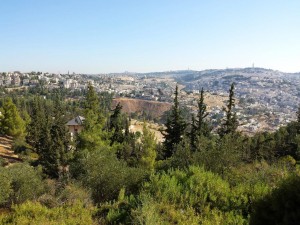
[The text for this essay is taken from: Weishut, D.J.N. (2012) My friend is a Palestinian Bedouin: Challenges and opportunities in intercultural friendship. Unpublished doctoral dissertation, The Professional School of Psychology, Sacramento, California, USA.]
In this era of heightened tension and polarization between Arab and Western cultures and ideologies, intercultural friendship receives additional significance. Bridging the challenges of intercultural friendship could be a small step toward social justice and a great opportunity for personal growth. Following, I will relate to the relevance and the intent of this study. This will be followed by an overview of this study and a description of the friendship studied.
 Relevance
Relevance
In previous centuries, the average person tended to stay more or less within her or his own environment, surrounded by family. While the family and heterosexual marriage lose their central place in Western society, friendships and alternative forms of intimacy and care become increasingly important (Roseneil & Budgeon, 2004). Moreover, physical and mental borders disappear and instead there is a global tendency for people to move around the world and intermingle with other cultures, either voluntarily or forced, temporarily or permanent, whether for vacation, jobs, marriage, as migrants, or otherwise (Lee, 2008; Samovar et al., 2009; Van Tilburg & Vingerhoets, 2006; Ward et al., 2001). Also within countries, people are increasingly likely to encounter diverse ethnic cultures, and growing numbers of countries need to deal with issues related to multiculturalism (Baum, 2007b; Bizi-Nathaniel et al., 1991). The world is becoming smaller particularly because of internet based communication, which increases intercultural contact (Flache & Macy, 2011).








